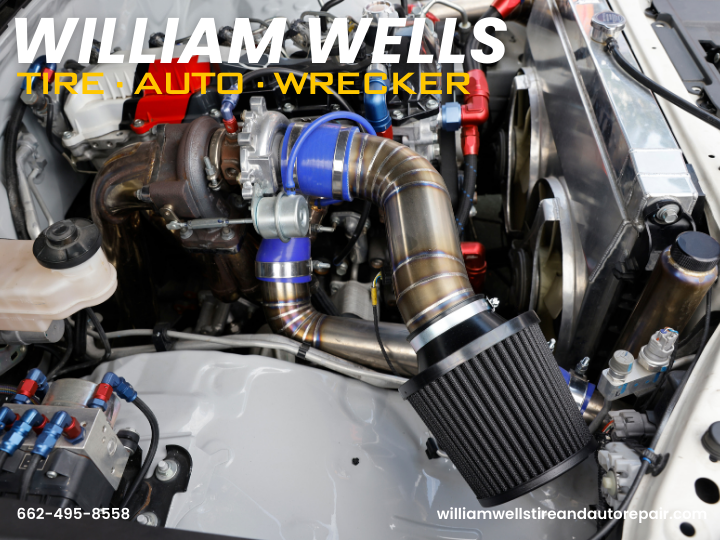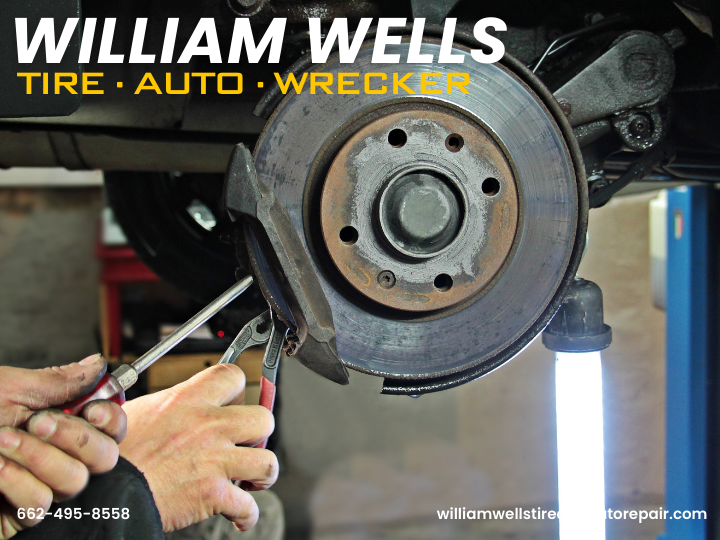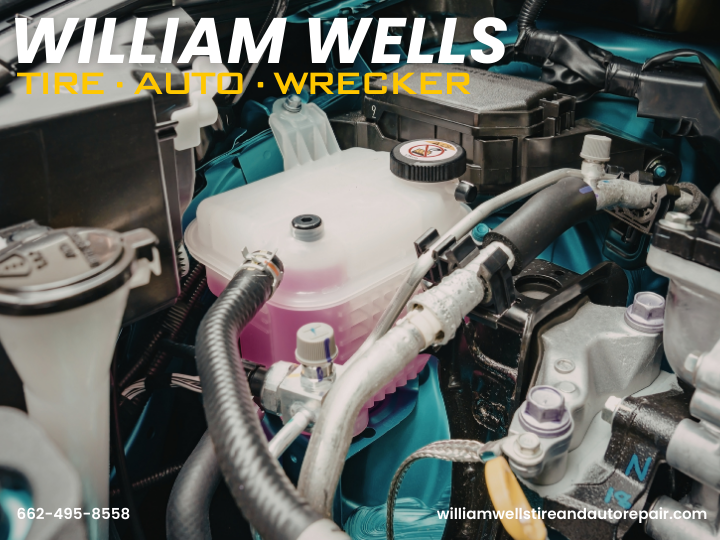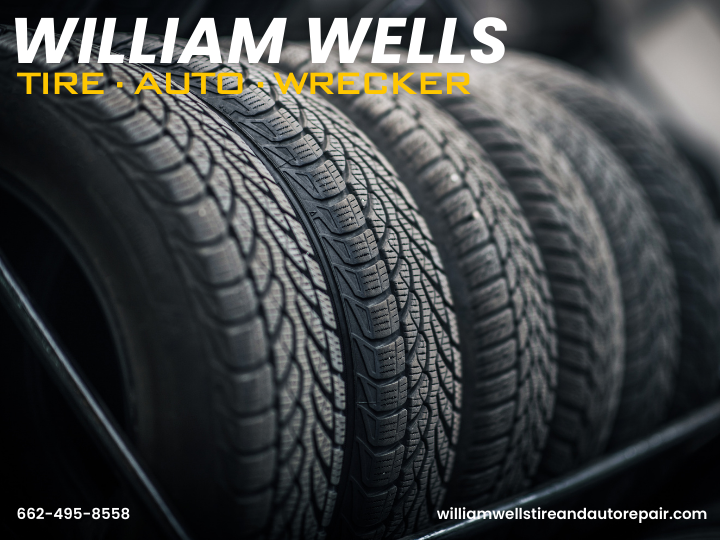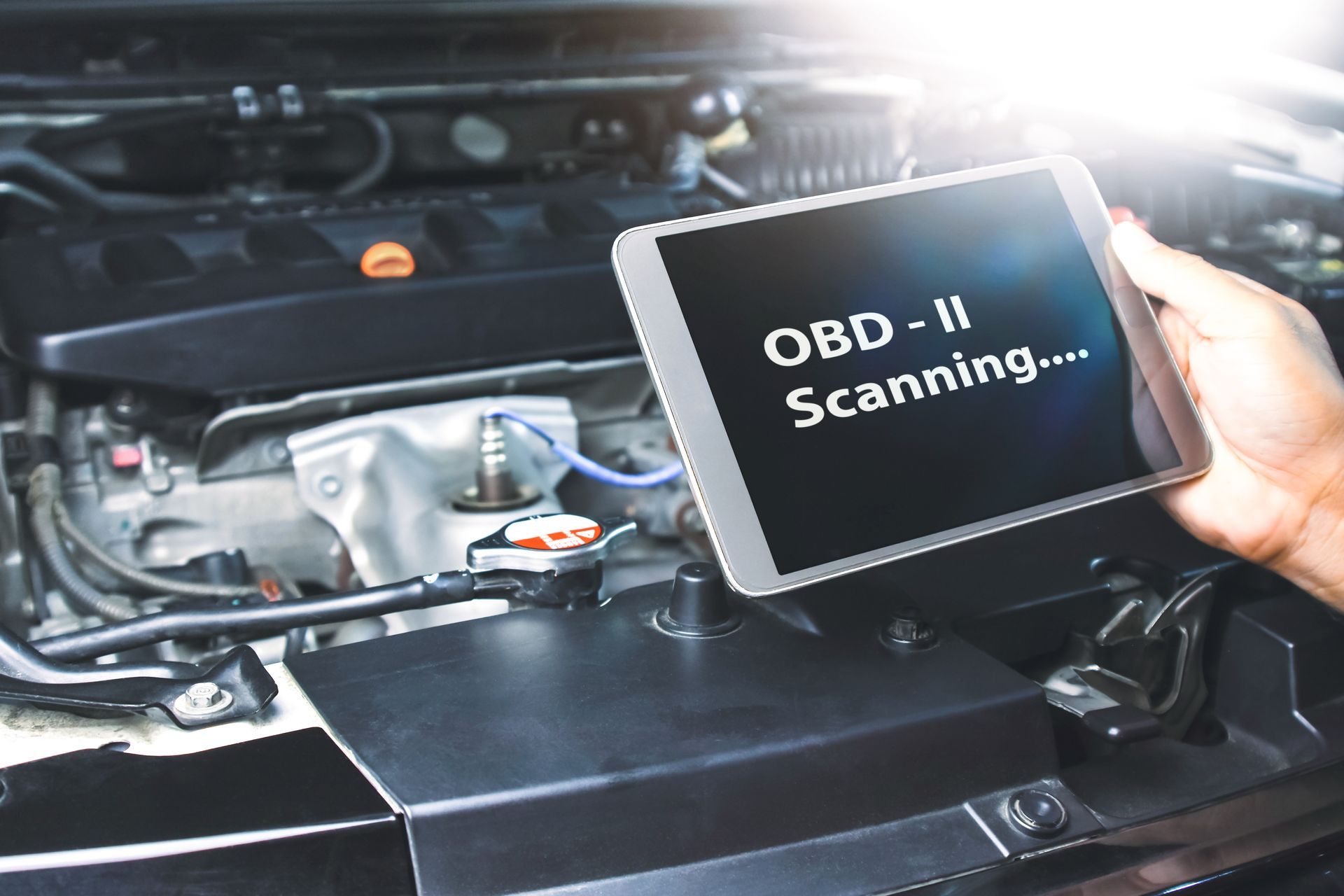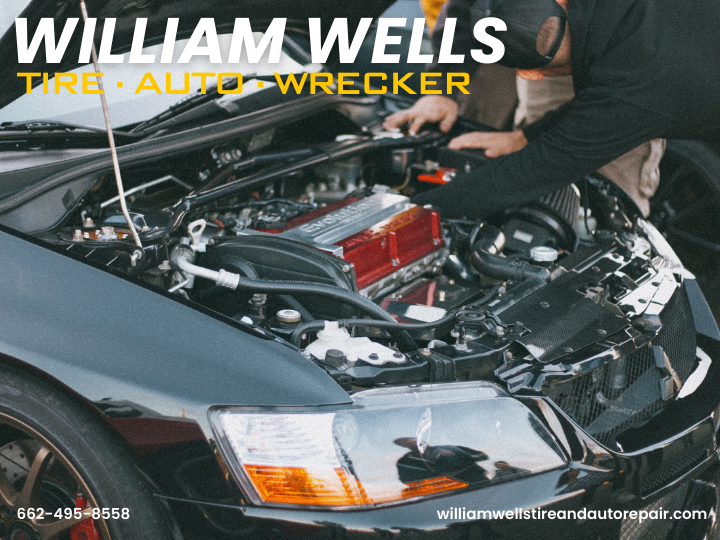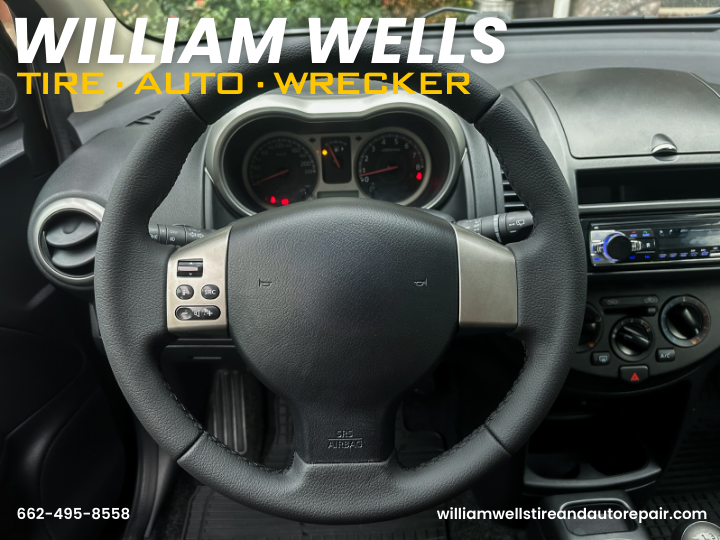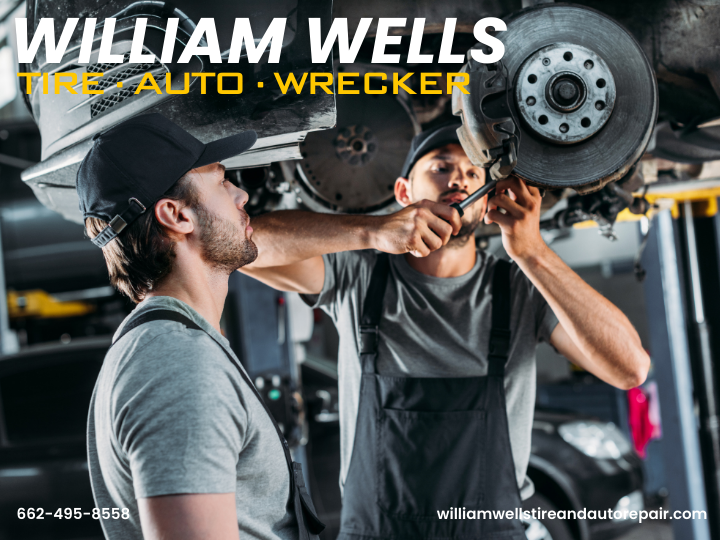Why Is My Vehicle Burning Oil?

Why Is My Vehicle Burning Oil? Expert Insights from William Wells Tire & Auto – Serving Starkville, Columbus & West Point, MS
You’re adding oil between changes. There’s a faint bluish smoke from the tailpipe. Maybe your check engine light is on, or you’re noticing a drop in fuel efficiency.
These are all signs that your engine may be burning oil—a serious issue that often starts subtly but can quickly lead to major engine damage if not addressed early.
At William Wells Tire & Auto, with locations in Starkville, Columbus, and West Point, Mississippi, we’ve helped thousands of drivers diagnose oil consumption problems and restore engine reliability with expert, transparent service.
What Does “Burning Oil” Actually Mean?
When your car is burning oil, it doesn’t necessarily mean oil is leaking onto the ground. Instead, oil is slipping past internal engine seals—typically piston rings or valve seals—and entering the combustion chamber, where it burns along with fuel.
This is not normal and should never be ignored.
Oil burning not only lowers your oil level but also causes exhaust smoke, spark plug fouling, engine wear, and expensive catalytic converter damage over time.
Common Symptoms of Oil Burning
If your vehicle is burning oil, you may notice:
- Low oil levels between oil changes
- Blue smoke from the tailpipe, especially when accelerating or starting up
- A burning oil smell inside or around the car
- Engine misfires or rough idle
- Oil-fouled spark plugs
- Drop in fuel efficiency
- Check engine or oil pressure lights
If you see any of these signs, visit your nearest William Wells Tire & Auto location in Starkville, Columbus, or West Point for a full inspection before the issue escalates.
What Causes a Car to Burn Oil?
The causes of oil burning are internal, often related to wear and tear or component failure. Here are the most common:
1. Worn or Damaged Piston Rings
Piston rings seal the combustion chamber. When they wear out, oil slips past and burns with the air-fuel mixture. This is one of the most common causes of internal oil loss.
2. Valve Seal Failure
Valve seals keep oil out of the cylinders. When they crack or harden with age or heat, oil drips down and burns during combustion.
3. PCV (Positive Crankcase Ventilation) System Failure
A clogged or stuck PCV valve causes internal pressure to build up and forces oil into the intake manifold, where it enters the combustion chamber and burns.
4. Cylinder Wall Wear
High-mileage or poorly maintained engines can develop scored or worn cylinder walls, reducing seal effectiveness and allowing oil to escape into the combustion chamber.
5. Turbocharger Seal Leaks (For Turbocharged Vehicles)
Failing turbo seals can allow oil into the intake or exhaust systems, leading to smoke and rapid oil loss.
Oil Leak vs. Oil Burn – What’s the Difference?
Both conditions lead to low oil levels, but the causes and fixes are very different:
- Oil Leaks: You’ll typically see oil on your driveway or on engine components.
- Oil Burning: Oil disappears internally and exits through your exhaust—often as smoke.
At William Wells Tire & Auto, our expert technicians use industry-leading diagnostics to accurately identify which issue you’re facing—and what to do next.
Our Step-by-Step Oil Burning Diagnostic Process
Here’s how we pinpoint the root of your oil consumption issue:
- Oil level check and consumption tracking
- PCV system inspection
- Engine compression and leak-down tests to check for worn rings or valves
- Visual and borescope inspection of valve seals and cylinder walls
- Spark plug evaluation for signs of oil fouling
- Manufacturer TSB (Technical Service Bulletin) checks for known model-specific issues
We perform these inspections at all three of our shops, ensuring you get the same high-quality service no matter where you’re located.
Is It Safe to Drive a Car That Burns Oil?
While you may be able to drive short-term, continuing to drive a vehicle that burns oil is risky. Here’s why:
- Catalytic converter damage from oil deposits
- Reduced performance and engine misfires
- Overheating due to low oil levels
- Engine seizure in severe cases
- Decreased fuel economy and emissions performance
Ignoring the problem only makes it worse—and more expensive.
Can Burning Oil Be Fixed?
Yes—and we’ll walk you through every option:
- Replace PCV valve – a quick and affordable fix if that’s the issue
- Replace valve seals – to stop oil from leaking into the cylinders
- Repair or replace piston rings – involves engine disassembly or rebuild
- Cylinder reconditioning or engine replacement – for severely worn engines
- Turbo system reseal or rebuild – for turbocharged vehicles
We’ll recommend what makes sense based on your vehicle’s condition, mileage, and your long-term plans—whether you want to repair, extend, or replace.
How to Prevent Oil Consumption Issues
Here are some best practices to reduce your risk of oil burning:
- Stick to your oil change intervals—even if your car “feels fine”
- Use the correct oil viscosity and formulation
- Monitor your oil level every 1,000 miles
- Address dashboard warnings immediately
- Visit us for regular inspections, especially if your vehicle has over 75,000 miles
Preventative care is the best way to avoid major repairs down the road.
Why Mississippi Drivers Trust William Wells Tire & Auto
With locations in Starkville, Columbus, and West Point, we’ve become the go-to name for trustworthy service, accurate diagnostics, and long-term vehicle health.
We offer:
- ASE-certified technicians
- Cutting-edge diagnostic equipment
- Fair, transparent pricing
- Consistent service quality at all locations
- Personalized repair strategies for each vehicle and budget
We don’t upsell—we explain. Our goal is to keep your vehicle running longer, cleaner, and stronger.
Schedule Your Oil Burning Diagnostic Today
If your vehicle is losing oil and you're not sure why, schedule an inspection with the experts you can trust across northeast Mississippi.
📍
Starkville: 12919 MS-182 | 📞 (662) 268-4081
📍
Columbus: 1625 Gardner Blvd | 📞 (662) 240-2414
📍
West Point: 93 W Broad St | 📞 (662) 495-8558
🌐
Book Online: https://www.williamwellstireandautorepair.com/
William Wells Tire & Auto – The Name Mississippi Trusts for Total Car Care.
For more information please watch the video


